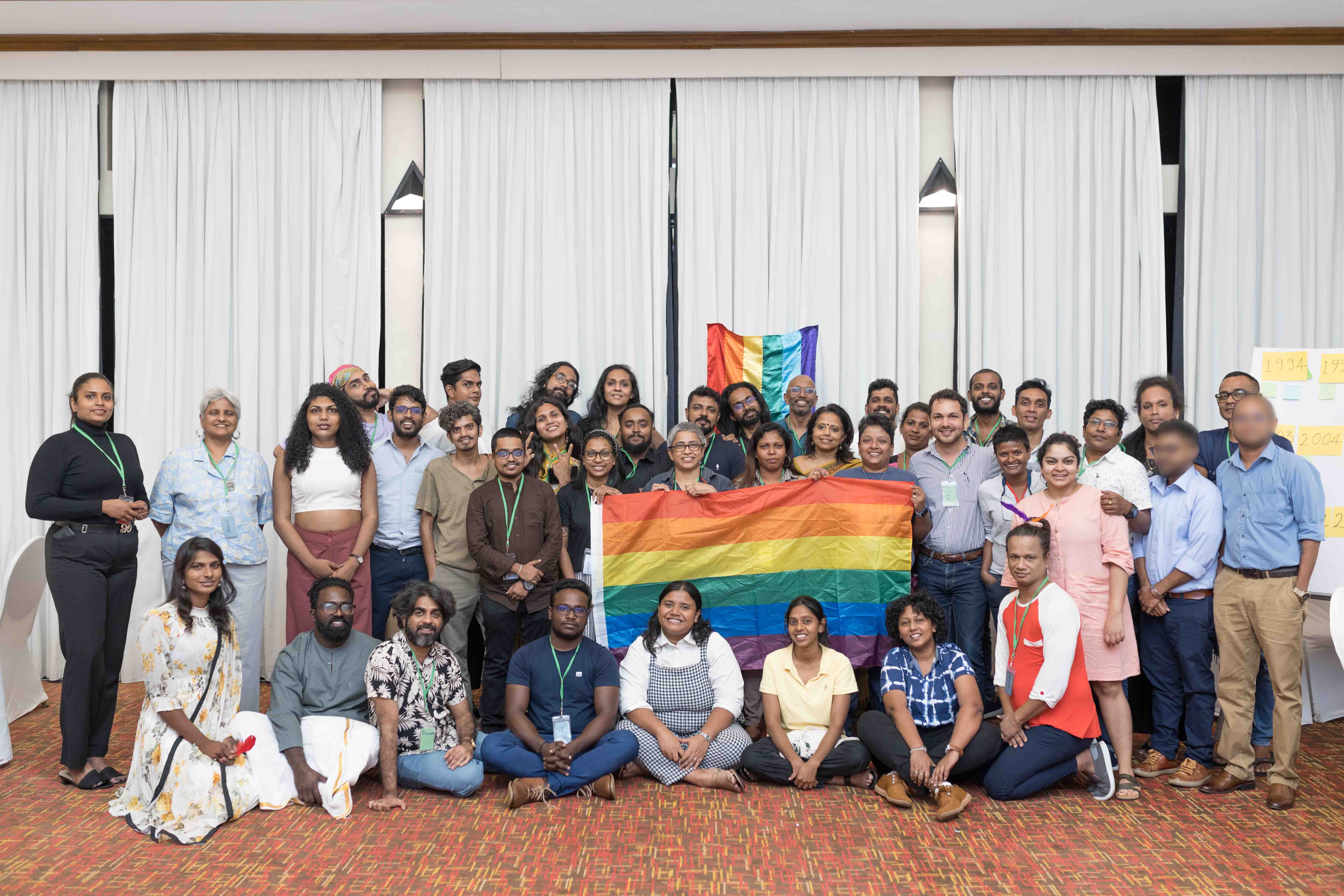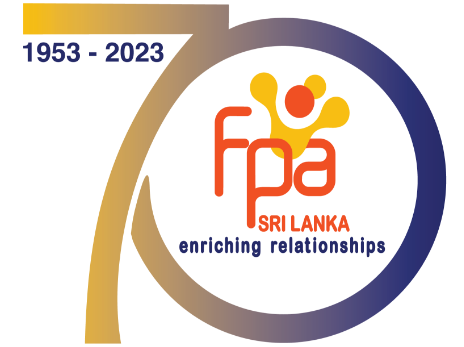Communities Call for Equality: National Dialogue on the ‘Penal Code (Amendment) Bill’, convened in Kandy

The Sustainability of HIV Services for Key Populations in Asia Programme SKPA-2 implemented by The Family Planning Association of Sri Lanka (FPA) convened a 2-day National Dialogue on the ‘Penal Code (Amendment) Bill’, that brought together fifty LGBTIQ+ activists, representatives of organisations, networks and allies from across the country, to collectively (re) strategise and build on existing strategies and action plans, to support the passage of the Bill into law.
The National Dialogue was proposed by SKPA2 in the context of a Private Members Bill, which was presented to Parliament in August 2022 by SLPP Parliamentarian and Attorney-at-Law Premanath C. Dolawatte. The Bill, referred to as the ‘Penal Code (Amendment) Bill’ was subsequently published in the Gazette in March 2023 and placed on the Order Papers of Parliament in April 2023. This Bill seeks to reform Sections 365 and 365A of the Penal Code to protect the fundamental rights of lesbian, gay, bisexual, transgender and intersex communities in Sri Lanka.
This law has been arbitrarily used to criminalise same-sex relationships between consenting adults. The fear of being discriminated against or even prosecuted because of the existing law prevents LGBTIQ+ people from accessing a range of fundamental human rights, including access to legal redress in situations of forced marriage, rape and other pervasive forms of sexual and gender-based violence.
The FPA has been working in the area of Sexual, Reproductive Health and Rights, which includes working with people living with HIV in multiple districts of Sri Lanka. As a service delivery organization, FPA with its mandate to remove socio-cultural and legal barriers that prevent key populations (including Gay, Bisexual and other Men-having-Sex-with-Men and Trans people) from accessing HIV services has for many years engaging with the LGBTIQ+ community to address barriers to access services and realize rights. Due to its arbitrary and discriminatory nature, Section 365A of the Penal Code has been identified as one of the many significant legal barriers that prevent key populations from accessing safe and confidential health services. FPA acknowledges and recognises its role as an ally in this process convened the National Dialogue that was led by the LGBTIQ+ community working nationally and regionally and was inclusive of other key allies from broader social justice movements.
This National Dialogue recognizes that a multi-pronged strategy is required by a wide network of LGBTIQ+ activists and allies working in ways that are complementary and building on respective strengths if this is to become a reality.
It must be noted, however, that this current draft law did not develop in a vacuum. LGBTIQ+ activists in Sri Lanka have been demanding equal rights for almost three decades, since 1995, when the first LGBT organisation – Companions on a Journey – was set up. Over the years, activists have invoked international treaty bodies and mechanisms, such as the CEDAW Committee, the Office of the High Commission for Human Rights, and the Universal Periodic Review, to highlight the injustice and violence faced by LGBTIQ+ people living in Sri Lanka. While multiple demands for the right to equality, dignity and respect have been made over the years, the most consistent demand has been for the repeal and reform of Sections 365 and 365A of the Penal Code.
Sri Lanka is now at a decisive moment in this journey to decriminalise adult, consensual same-sex relationships. This is the first time that a draft amendment has been presented in Parliament to amend Section 365 (to only criminalise bestiality) and repeal Section 365A in its entirety. This too, in the context of a progressive Supreme Court determination which stated that “the Bill as a whole, or any provision thereof, is not inconsistent with the constitution” of Sri Lanka. In April 2023, three petitioners invoked the Supreme Court, declaring that the Bill was unconstitutional and against religious beliefs. In response to this, a total of 14 intervening petitions were submitted to the Supreme Court, including one from FPA Sri Lanka, with Sonali Gunasekara-Director Advocacy and Jake Oorloff- Programme Officer SKPA-2, being named as intervening petitioners. The Intervenient Petitioners recognized that the criminalization of sexual relations between consenting adults is an archaic colonial value with no resonance with human rights standards. In a landmark decision, the Supreme Court of Sri Lanka ruled that “all persons shall be equal before the law and be entitled to equal protection of the law, irrespective of their sexual orientation and that the [Penal Code Amendment] Bill would in fact, enhance their fundamental rights guaranteed to them under the Constitution and enable them to live in a society with dignity.”
Given this unique window of opportunity in Sri Lanka’s journey towards decriminalization, what happens next is especially crucial so that the momentum of this struggle is not lost. It is crucial, therefore, for LGBTIQ+ activists and allies to re-strategize and work together to leverage the gains made so far to ensure this draft legislation is passed in parliament. The meeting held over two days included the following sessions:
*Status of the current draft amendment and associated legal and parliamentary process, as well as the legal timeline for the same.
* Lessons from ‘Voices Against 377’ and the Indian experience of decriminalisation: understanding legal and other strategies to achieve this, including strategies to mobilise local communities.
* Session 3: Mapping the multiple gaps and needs in Sri Lanka to move forward on the local decriminalisation process.
* Session 4: Developing a clear action plan with commitments from multiple stakeholders on key steps to be taken over the next 12 months. (Proposed Facilitator: Ambika Satkunanathan, Former Human Rights Commissioner)
* Session 5: Identifying potential threats that could arise as a backlash to the LGBTIQ+ community and develop strategies to mitigate the same.
The two-day meeting was Facilitated by a human rights lawyer, human rights activist and former Commissioner of the Human Rights Commission of Sri Lanka, Ambika Satkunanathan and was supported by community members who drew on their own lived experience and engagement in activism. The National Dialogue ensured representation from the regions as well as the inclusion of women and women-led groups who are often under-represented in such spaces.
.png)


